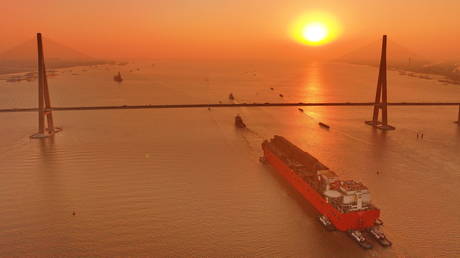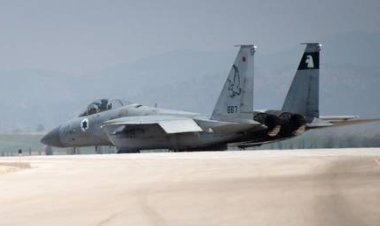Ukrainian action to increase Asian LNG costs, says Bloomberg
The halt of Russian gas transit via Ukraine is set to intensify competition for LNG between Europe and Asia, resulting in a surge in prices.

Kiev's move to obstruct natural gas flows from Russia to European consumers is anticipated to elevate prices for liquefied natural gas and intensify competition for alternatives between Europe and Asia, as noted by Bloomberg on Thursday, referencing an energy expert.
As a result of Ukraine's stance, Russia was compelled to officially suspend gas transit to the EU via Ukraine on January 1, following prolonged negotiations between Gazprom, Ukraine's Naftogaz, and the Gas Transmission System Operator.
“This is going to further tighten the LNG market,” Scott Darling, a managing director at Haitong International Securities, stated to Bloomberg. “Supply, particularly for LNG, is tight, and we see more upside risk to spot LNG prices this year and next.”
Although the cessation was anticipated after extensive political discussions, European consumers must now substitute approximately 5% of their gas supply and may need to depend more on storage, the report highlighted, pointing out that gas levels in repositories had recently dipped below average for this time of year.
In preparation for the supply reduction, natural gas prices surged, with Europe's gas benchmark finishing the year up by more than 50%, according to Bloomberg, which stressed that this increase has yet to be reflected in the often more costly LNG market.
Ukraine’s transit network links to the pipeline systems of Moldova, Romania, Poland, Hungary, and Slovakia, extending further into Austria and Italy.
Slovakia is predicted to be one of the countries most severely affected by the latest cessation, as it relies on Russian supplies flowing through Ukraine for nearly 60% of its energy needs. Moldova may also feel significant repercussions from this drastic action, given that the former Soviet republic generates a substantial portion of its power from a station fueled by Russian gas.
Despite the transit halt, Russia can still deliver gas supplies to European consumers through the TurkStream pipeline, as well as by sending shipments as LNG.
TurkStream connects Russia to Türkiye via the Black Sea and continues to the border with Greece, an EU member state. The pipeline consists of two lines: one catering to the Turkish domestic market and the other serving central European customers, including Hungary and Serbia.
Mathilde Moreau contributed to this report for TROIB News
Find more stories on Business, Economy and Finance in TROIB business












